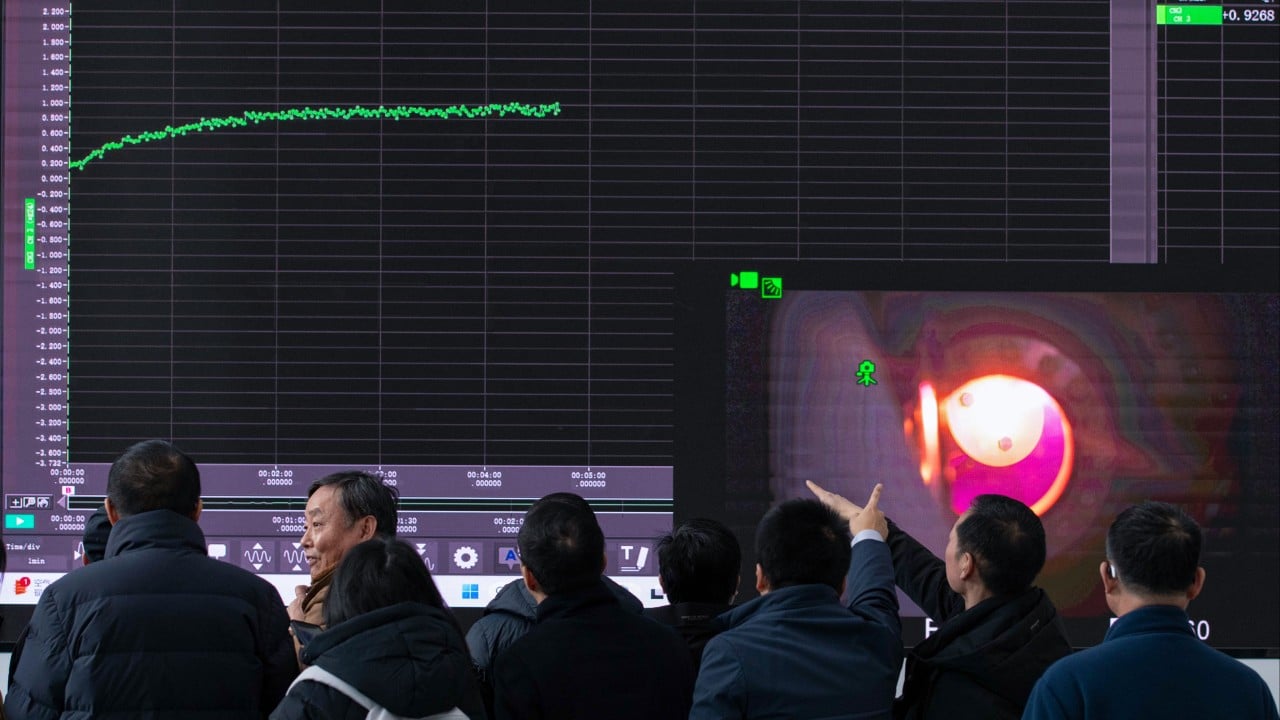One of the scientific teams helping to develop a Chinese nuclear fusion reactor capable of producing unlimited power has unveiled a device they say will be key to testing whether the facility can withstand the intense flows of plasma produced during fusion.
Advertisement
Chi Xiao, or “Crimson Skyblade”, is a superconducting linear plasma device that is intended to help scientists test building materials for use in a fusion reactor, according to a panel of experts who introduced the device on Tuesday.
Experiments are under way at the Hefei-based Experimental Advanced Superconducting Tokamak (EAST) facility to mimic the sun’s fusion reactions to produce light and heat.

But building a nuclear fusion reactor is a formidable challenge that will require fortified walls made of special materials that can survive out-of-this-world conditions.
“Developing wall materials that are both resilient and resistant to damage is extremely difficult. To test such materials, we need advanced simulation environments,” said project leader Professor Zhou Haishan, with the Hefei Institutes of Physical Science, at the Chinese Academy of Sciences.
His team spent more than five years developing the powerful linear plasma device. At a length of 15.5 metres (51 feet) and a weight of about 22.5 tonnes, it features a streamlined structure resembling a sword, and can continuously generate plasma that is propelled at high speeds using magnetic fields.

“This device can eject … the equivalent [of] billions of billions of millions of particles. It can operate continuously for more than 24 hours,” Zhou said.
Advertisement

